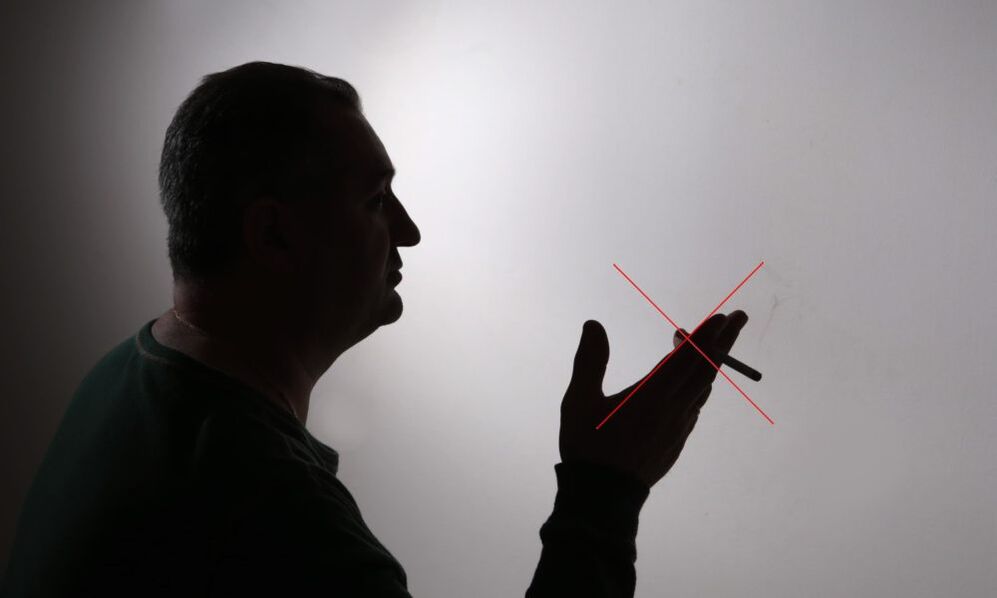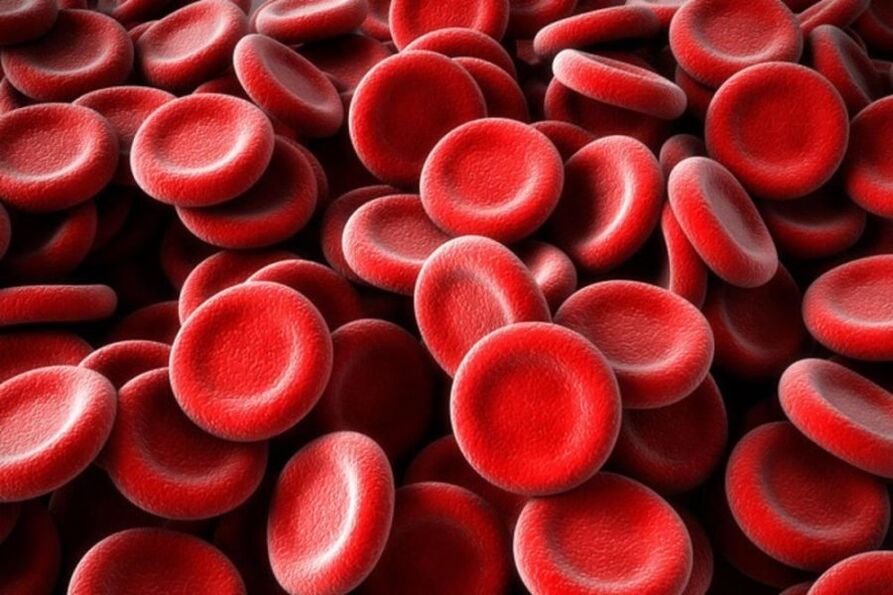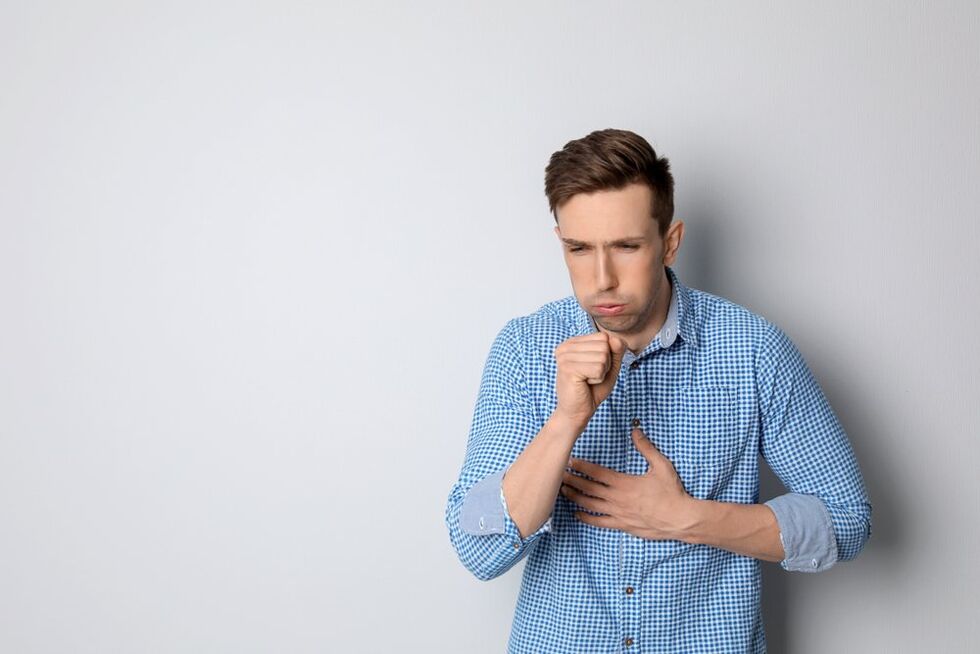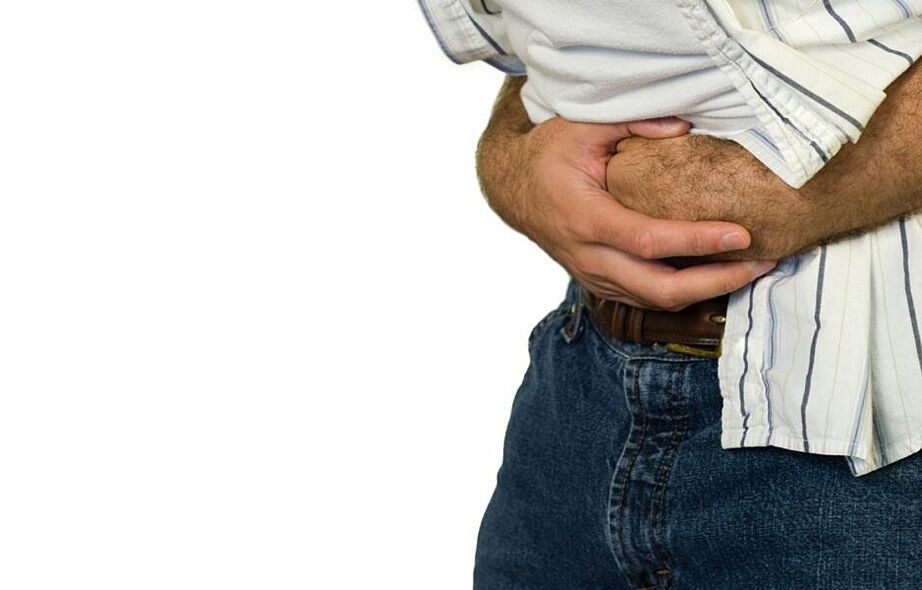
Smoking is a drug addiction that is very difficult to treat. Cigarettes get into the lifestyle quickly, and without it, one feels overwhelmed. Anyone who has ever tried to say goodbye to a devastating habit knows that this is not easy to do. After prolonged smoking, the body reacts negatively to a lack of nicotine, so a complete rejection of a cigarette is accompanied by a "withdrawal" syndrome. Before making a difficult decision, you need to know what will happen to the body and how to survive this period.
Advantages and disadvantages of smoking cessation
A person who decides to quit smoking will experience some discomfort at the beginning of a difficult journey. The changes scare the smoker, so many give up their idea and smoke cigarettes again. Nicotine deficiency is manifested in a variety of symptoms that suggest the development of stress due to smoking cessation. If smoking lasts a long time, recovery will be painful and long. The process of restructuring is always accompanied by mental and physical discomfort:

- Decreased immunity - a former smoker is prone to frequent colds. If nicotine used to be a doping agent, without it, the body gets severely stressed. Against this background, ARVI, acne, stomatitis, etc.
- There is an intense cough with brown sputum - there is no need to be afraid of it, because the cough frees the airways from soot and soot. Over time, the ciliated epithelium continues to work, squeezing out the mucus and sputum accumulated in the bronchi;
- Irritability, nervousness, depression - when nicotine does not get into the body, withdrawal occurs. It lasts for several days. During this period, the former smoker closely follows the people who inhale the tobacco smoke, dreams of the whole process, the smell drives him crazy and arouses a strong desire to smoke. If nicotine used to activate pleasure receptors, now their work is inhibited. A person shows aggression, crushes loved ones. Relatives need to support the former smoker, distract them, take an interest in a new hobby. The craving gradually decreases, but the craving for smoking is not going anywhere;
- Headaches and discomfort occur in the abdomen - within a few weeks, the body is cleared of the breakdown products of nicotine, which normalizes the functioning of all organs and systems. Lack of nicotine leads to vasospasm, abdominal pain and stool disorders. The unpleasant symptoms disappear after 2-3 weeks.
A person who has quit smoking is very hungry, suffers from insomnia, complains of a slow heartbeat. He starts rushing to the food, causing him to be overweight. All of these symptoms are accompanied by a bad mood and irritability. But there are also benefits to quitting smoking:
- breathing recovers within 7 days;
- bad breath disappears;
- the sense of smell returns and the taste buds function normally;
- after a month the blue circles under the eyes disappear, the skin becomes more elastic, the color improves;
- blood circulation normalizes, blood vessels are toned, potency improves in men.

In addition, the blood is saturated with oxygen, which feeds all the cells. This makes the skin and internal organs less susceptible to aging. The body is cleansed of toxins, immunity increases. After a few weeks, lung volume normalizes and symptoms of chronic pathologies of the respiratory system often disappear. However, the main benefits of quitting smoking are reducing the risk of high blood pressure, lung cancer, stroke and heart attack.
Important!
The removal of nicotine does not mean the complete cleansing of the body of its breakdown products that have accumulated over the years. Recovery takes place gradually, usually over months or sometimes years.
Changes in the body from day to day
Any narcologist will tell you what happens in the body of a man who has decided to finally get rid of his nicotine addiction. Doctors say the benefits of quitting smoking are very great, but you have to be patient until your body recovers. The liver produces endogenous nicotine, which maintains normal metabolism. Tobacco nicotine cannot be compared to its own and is available in larger quantities. When the level of the substance decreases, the body experiences hunger for nicotine and requires a new dose. If it cannot be obtained from the outside, the liver will start producing endogenous nicotine again. After 3 days, one can cope without a cigarette, but the craving persists.
When it comes to psychological addiction, the situation is more complicated. There can be many reasons for the pathological craving for smoking, there may be an innate tendency to addictions, difficulties in communicating with people, a desire not to stand out, and so on. It’s hard to get rid of such an addiction, and the more experience you have, the harder it will be on the road to a healthy life. The situation is complicated by smoking friends who have to be there all the time. In order not to look like a "white crow", many again inhale the harmful smoke, such a desire lasts for years and does not let go. A psychotherapist will help get rid of him who finds out the causes of the pathological addiction and will be able to motivate the patient.
What is the first 10 days without nicotine like?
Consider how the body recovers after quitting a cigarette and what it entails:
- First day- The blood is cleansed of carbon monoxide and saturated with oxygen. The man is proud of himself, sure that he was able to overcome a bad habit and is ready to go to the end. At this stage, the craving for a cigarette is mild, easily interrupted by suggestions such as "I quit smoking. " Sometimes a person has dizziness, weakness, mild anxiety. The first day is hard to fall asleep, eat, sleep is shallow and sensitive;
- The second day- the ciliated epithelium starts to work better, the production of mucus in the lungs decreases, the first signs of withdrawal syndrome appear. The euphoria continues, but irritability and nervousness appear. Craving can still be suppressed by self-hypnosis, drowsiness is replaced by energy. On a physiological level, there are changes such as an increase in appetite, one is attracted to foods with a pronounced taste. Cough intensifies, shortness of breath develops, abdominal cramps, frequent cravings for the toilet. Man has difficulty falling asleep, itching is possible, the skin is tight;
- The third day- Restoration of the bronchi and ciliated epithelium begins. The blood vessels become toned, and the craving for nicotine decreases on a physiological level. On day 3, nervousness intensifies, addiction becomes more pronounced, one does not know how to divert attention and what to do. Sleep disturbance, often interrupted. Appetite increases sharply, the person is attracted to the "sweetness", belching and heartburn occur. When he bends, the head spins, the heart "contracts", there is noise in the ear.
- Fourth day. The blood flow to the brain normalizes and the stomach and pancreas continue to recover. Aggressiveness gradually decreases, irritation can be stopped with medication. Many people feel better, but the fun is noticeable, sleep is still superficial. Hypertension, tinnitus, mild dizziness may occur. Urination returns to normal, but there is constipation. The appetite decreases, the craving for certain foods is noticeable. A person feels a viscous mucous lump in the throat, coughing occurs. Many of them have swollen faces, fingers, and ears;
- The fifth daywithout cigarettes - ulcers heal on the tongue, vascular tone normalizes. Some stages of the broncho-pulmonary system are under rehabilitation, and bowel work is still disrupted. On day 5, the euphoria disappears, the health deteriorates, the desire for smoking. It's easy to get rid of this, you can't give in to insidious desires. The food will be tastier, but only for dairy products, citrus fruits, etc. Loose secretions may be felt in the chest area or throat, making it difficult to breathe. The viscous, dark sputum coughs intensely;
- On the sixth dayincreases mucus secretion, normalizes the work of the stomach and pancreas. Withdrawal syndrome increases with renewed vigor, with tearing, insomnia and irritation. One is looking for a cigarette, it is difficult to restrain oneself, but it is necessary. In light of this, vegetative disorders can be seen in the form of sweating, tremors, and nausea. Sometimes there is pain in the hypochondria, bitterness in the mouth, increased thirst. The dark mucus is still coughing, blood fibers can be seen in it;
- Seventh day- physical desire practically disappears, the body works calmly without the usual dose of nicotine. From this day on, complete healing begins. One is shocked, but he is already aware that smoking is a kind of ritual and not a physical necessity. It is important to completely protect yourself from everything related to tobacco products. Motivation to quit smoking has been renewed. The mucus does not disappear, the cough is intense. Intestinal tone normalizes, but occasionally constipation may occur. A week without a cigarette has a positive effect on appetite, but fatty foods cause heartburn.

Important!
The first five days are the hardest for someone to quit smoking. He is going through a strong "collapse". This is where the risk of breakage is greatest.

The eighth day is characterized by the activation of olfactory and taste receptors. The tissues in the lungs are still recovering, but the blood vessels in the brain have not yet strengthened. The beginning of the second week goes on more emotionally. Irritation, aggression, and depression are less pronounced. Psychological addiction persists, sometimes intensifying. One person complains of feeling detached and losing something important, sleep is still disturbed. The food gets a new taste, the person gets stressed, resulting in weight gain.
The ninth day is associated with an improvement in the condition of the gastric mucosa and digestion. The bronchial lung system is further regenerated and hematopoiesis is normalized. It is difficult for those living in the company of smokers to restrain themselves, but the smell of tobacco is already disgusting. Possible heartburn, abdominal pain, constipation and diarrhea alternate. ARVI is easy to catch at this time, and herpes and allergic reactions appear.

Day 10 - The recovery process continues, immunity gradually improves. Cigarettes no longer cause painful thoughts, but people who smoke nearby cause trouble. At this stage, one needs the support of loved ones as his own motivation runs out. The mucous cough continues and can be relieved with hot drinks or food. Many people produce gray or light yellow sputum that smells bad.
The last 4 days of the first phase of the fight against bad habits
On the eleventh day, the condition of the arterioles that carry blood to the tissues improves. Currently, metabolism and hormone levels are normalizing. This explains the change in the psyche, the decrease or increase in weight. On an emotional level, aggression and irritability occur, and cravings for nicotine increase, which can be explained by finding out if there will be disgust. Unpleasant symptoms reappear, which can be attributed to withdrawal syndrome. Internal tension, tremors, and dizziness are the consequences of supersaturation of the brain with oxygen.
Important!
It is believed that you can only quit smoking suddenly if the experience does not exceed 5 years. In other cases, it is not recommended to go to extreme measures. You need to see a doctor before you can get rid of nicotine addiction.
Day Twelve - Chronic inflammation of the gastrointestinal tract and lungs subsides, the body's defense functions improve. The psyche is similar to the 11th day, one still needs the support of loved ones. Non-heavy smokers notice an improvement in facial skin, a reduction in coughing, and digestion.
Thirteenth day - there is active regeneration of cells, vessels are unstable. A person may try to smoke out of curiosity. Feeling unwell, jumping in blood pressure, weakness, heaviness in the back of the head.
The fourteenth day is characterized by the healing of the mucous membranes of the bronchi, the vessels receive sufficient nourishment, and the tissues recover. It is psychologically difficult this day, there are those who try cigarettes again, their behavior is motivated by the fact that they have managed to persevere for a long time, and 1 dose of nicotine does not hurt. At the physiological level, the cough subsides, the yellow color of the skin gradually disappears, lethargy, weakness and drowsiness occur.

Changes after quitting a cigarette will continue for a long time, with full recovery occurring in a few years. After 8-10 months, the yellowing of the teeth disappears, the volume of the lungs increases, and the condition of the skin and nails improves. If you used to smoke more than one pack a day, the risk of a stroke or heart attack is reduced 2 times and the risk of cancer is reduced 3 times a year after you quit smoking. leaves the body. It will be easier to breathe, your bronchi will clear, your blood pressure will drop.
How you can help yourself
If a smoker decides to finally overcome his addiction, he must act immediately. Motivation can be the desire to conceive a baby, maintain health, and so on. Once the goal is set, it will be easier to give up cigarettes. At first, the body needs to get the most useful substances and vitamins. In the morning, it is recommended to drink 1 glass of warm milk on an empty stomach. It is advisable to spend more time outdoors and play sports. New hobbies help you forget and survive separation from addiction more easily.
Some people find it easier to fight nicotine addiction with their friends or loved ones. If not, read the reviews online for stimulation, maybe you have an online friend who also needs support.

























